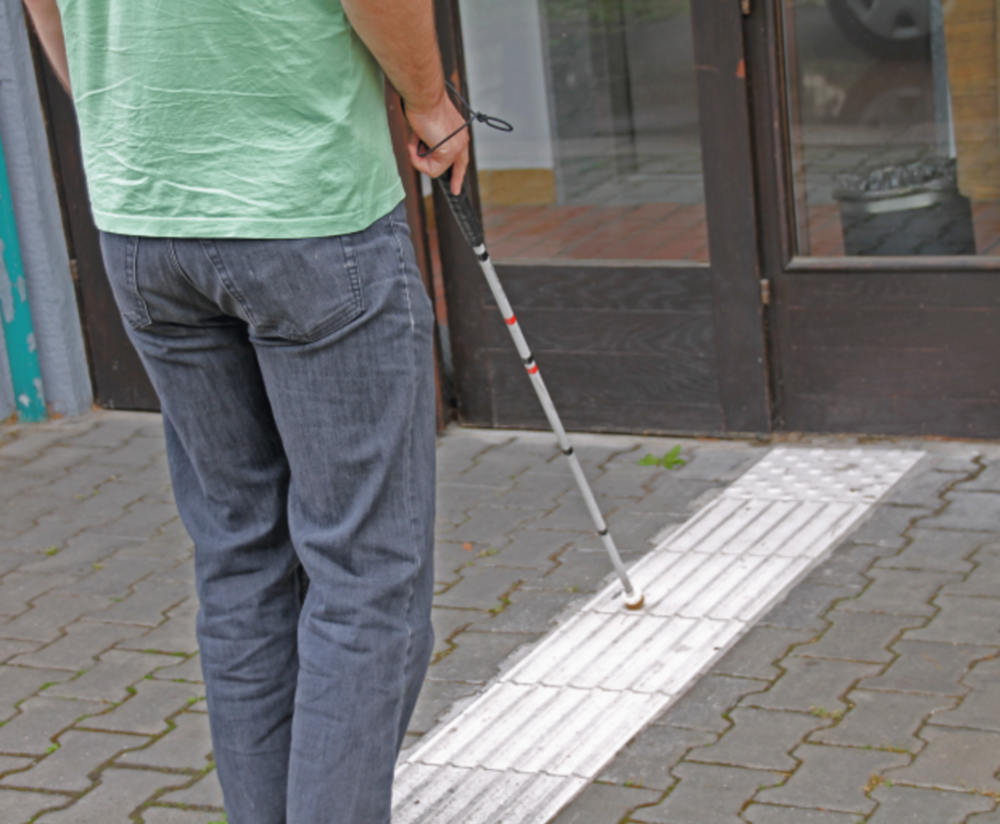On International White Cane Safety Day celebrated on 15 October, Human Rights Ombudsman Peter Svetina highlights that the blind and partially sighted must have the same opportunities and conditions for a decent standard of living and quality-based and comprehensive inclusion in society. “Unfortunately, we still cannot be satisfied with the accessibility of buildings in public use for people with sensory impairments. The inaccessibility of buildings for people with impairments is a problem in Slovenia that is being solved too slowly. Twelve years after the implementation of the Equalisation of Opportunities for Persons with Disabilities Act (ZIMI) and two years before the legally binding deadline, insufficient tactile markings are provided for blind and partially sighted people in public areas and in apartment buildings, which would enable them an independent life,” stresses Svetina.
At the end of last year, the institution of the Ombudsman presented the Ombudsman’s Special Report on the Accessibility of Centres for Social Work for People with Movement and Sensory Impairments. The Ombudsman’s report revealed that none of the units of centres for social work in Slovenia does have signs in Braille writing for the blind and partially sighted. At the time of checking, only one of all 63 units in the country had tactile markings for the orientation of the blind and partially sighted. “We also dealt with the possibility of access for people with sensory impairments, i.e. with impairments of sight and hearing, to Slovenian courts. I expect the courts to adopt special measures for the accessibility of websites and mobile apps of courts for easier access to court information for all users, especially people with disabilities,” highlights the Ombudsman.
The Ombudsman also calls for other suitable adjustments for the blind and partially sighted. “We warn about the poor adjustment of study materials and various knowledge competitions for blind and partially sighted children, which causes unequal treatment of these children. Without adjustments people with disabilities are even more vulnerable since they are being pushed to the margins of society and their constitutionally guaranteed rights are not being considered. Hence, I expect that those responsible adopt concrete solutions and provide financial means for the elimination of discrimination of the blind and partially sighted as well as other people with disabilities,” adds Ombudsman Svetina upon International White Cane Day.

![[Translate to English:] Slepa oseba z belo palico [Translate to English:] Slepa oseba z belo palico](/fileadmin/_processed_/2/f/csm_Bela_palica_22bada3f57.png)